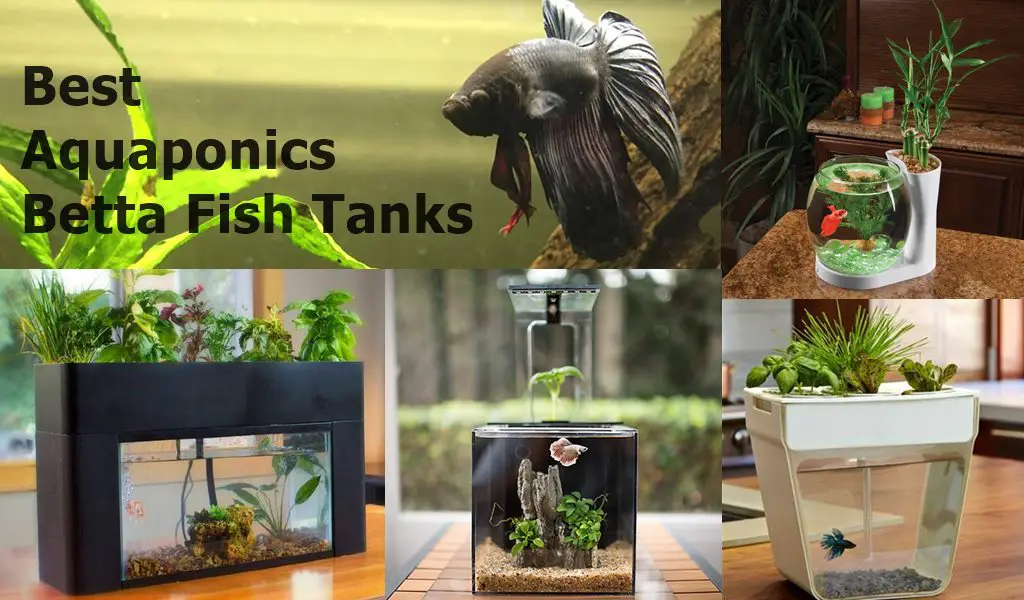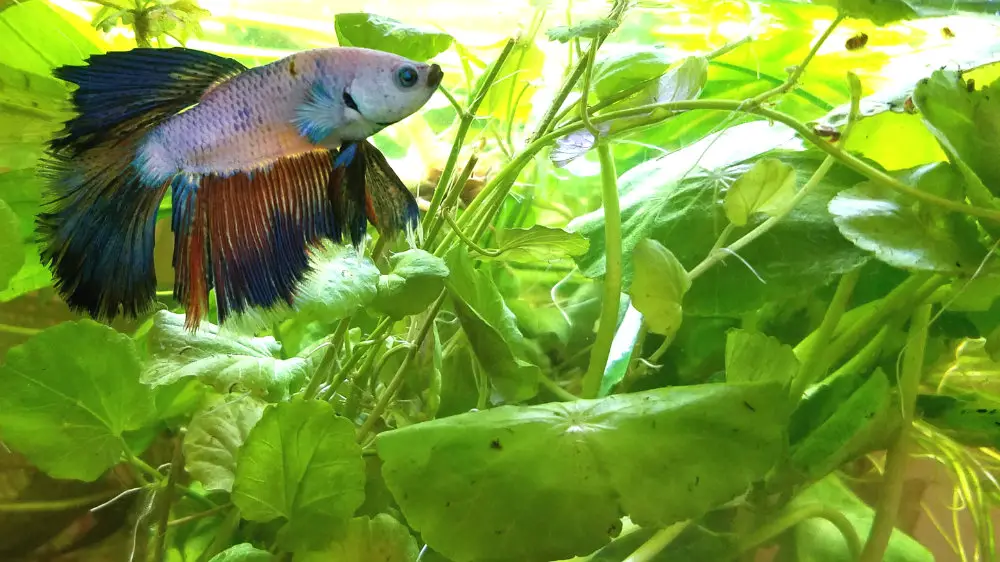Originally posted on May 20, 2023 @ 5:00 pm
Last Updated on 1 month by admin
Are you a fan of aquaponics and betta fish? Have you ever considered combining the two? While this may seem like an ideal pairing, there are certain do’s and don’ts you should be aware of. In this article, we’ll explore the benefits of combining aquaponics and betta fish, as well as some common mistakes to avoid.
Aquaponics has become increasingly popular in recent years as a sustainable way to grow plants and fish together. Betta fish, with their vibrant colors and unique personalities, are a popular choice for aquaponic enthusiasts. However, there are certain considerations to keep in mind when combining these two elements. Join us as we delve into the world of aquaponics and betta fish to uncover the do’s and don’ts of this exciting combination.
When combining aquaponics and betta fish, there are several do’s and don’ts to keep in mind. Do ensure that the tank is large enough for both the fish and the plants to thrive. Don’t overstock the tank with too many fish or plants. Do test the water regularly to maintain the proper pH and nutrient levels. Don’t use any chemicals or pesticides that could harm the fish or plants. By following these guidelines, you can successfully combine aquaponics and betta fish for a thriving ecosystem.

Combining Aquaponics and Betta Fish: Do’s and Don’ts
Aquaponics is an innovative system that combines aquaculture and hydroponics to create a sustainable and eco-friendly way of growing plants and fish. Betta fish, also known as Siamese fighting fish, are one of the most popular fish species for aquaponics systems due to their beauty and hardiness. However, there are certain do’s and don’ts that you need to keep in mind when combining aquaponics and betta fish. In this article, we will discuss some of the most important points to consider.
Do Choose the Right Tank Size
Choosing the right tank size is crucial when it comes to keeping betta fish in an aquaponics system. Betta fish require a minimum tank size of 5 gallons, but it’s recommended to go for a larger tank of at least 10 gallons. This will provide enough space for the fish to swim around and will also help maintain stable water conditions.
When choosing a tank size, you should also consider the number of plants you want to grow in your aquaponics system. A larger tank will allow you to grow more plants, which will help filter the water and provide a better environment for your fish.
Don’t Overstock Your Tank
Overstocking your tank is one of the biggest mistakes you can make when keeping betta fish in an aquaponics system. Betta fish are territorial and aggressive, and they need their own space to thrive. Overcrowding the tank can lead to stress, aggression, and even death.
As a general rule, you should have no more than one betta fish per 5-10 gallons of water. This will provide enough space for the fish to establish their territory and will also help maintain good water quality.
Do Maintain Good Water Quality
Maintaining good water quality is essential when keeping betta fish in an aquaponics system. Betta fish are sensitive to changes in water conditions, and poor water quality can lead to stress, disease, and even death.
To maintain good water quality, you should test your water regularly for pH, ammonia, nitrite, and nitrate levels. You should also perform regular water changes to keep the water clean and free of toxins.
Don’t Use Chemicals or Medications
Using chemicals or medications in your aquaponics system can be harmful to your betta fish and can disrupt the balance of the ecosystem. Instead, focus on maintaining good water quality and preventing disease through proper care and maintenance.
If you do need to treat your fish for a specific condition, consult with a veterinarian who is familiar with aquaponics systems and can recommend safe and effective treatments.
Do Choose the Right Plants
Choosing the right plants is important when it comes to keeping betta fish in an aquaponics system. You should choose plants that are compatible with the needs of your fish and can help filter the water.
Some good plant choices for aquaponics systems include water lettuce, water hyacinth, duckweed, and watercress. These plants can absorb excess nutrients from the water and provide a natural filtration system for your fish.
Don’t Feed Your Fish Too Much
Overfeeding your fish is a common mistake that can lead to poor water quality and health issues. Betta fish have small stomachs and should be fed small amounts of food several times a day.
You should also avoid feeding your fish processed foods or foods that are high in fat or protein. Instead, opt for high-quality betta fish pellets or flakes and supplement their diet with live or frozen foods like brine shrimp or bloodworms.
Do Monitor Your Fish’s Health
Monitoring your fish’s health is important when keeping betta fish in an aquaponics system. You should observe your fish regularly for any signs of stress, disease, or injury.
Some common signs of stress or illness in betta fish include lethargy, loss of appetite, fin rot, and fungal infections. If you notice any of these symptoms, it’s important to take action immediately and consult with a veterinarian if necessary.
Don’t Neglect Your System Maintenance
Neglecting your aquaponics system maintenance can lead to poor water quality and health issues for your fish. You should perform regular system maintenance tasks like cleaning the tank, checking the water quality, and pruning the plants.
You should also monitor the pH and temperature of the water regularly and make adjustments as necessary to maintain a stable environment for your fish.
Do Enjoy Your Beautiful Aquaponics System
Combining aquaponics and betta fish can be a rewarding and enjoyable experience. Not only will you have a beautiful and eco-friendly way of growing plants, but you’ll also have a stunning centerpiece in your home.
By following these do’s and don’ts, you can create a thriving and sustainable aquaponics system that will provide a healthy and happy home for your betta fish.
Frequently Asked Questions
In this section, we will answer some common questions about combining aquaponics and betta fish.
What is aquaponics, and how does it work?
Aquaponics is a method of growing plants and fish together in a closed-loop ecosystem. The plants are grown in a hydroponic system that uses nutrient-rich water from the fish tank. The fish waste provides the nutrients that the plants need to grow, and the plants, in turn, filter the water, which is then returned to the fish tank.
To set up an aquaponic system, you will need a fish tank, a hydroponic grow bed, and a pump to circulate the water between the two. The system can be as small or as large as you like, depending on your needs and the space available.
Can betta fish be used in an aquaponic system?
Yes, betta fish can be used in an aquaponic system, but there are some things to keep in mind. Betta fish are tropical fish, so the water temperature should be between 75 and 82 degrees Fahrenheit. The water pH should be between 6.5 and 7.5, and the ammonia levels should be kept below 0.25 parts per million.
It’s also important to note that betta fish are carnivorous and require a high-protein diet. You will need to feed them a mixture of commercial betta pellets and frozen or live food, such as brine shrimp or bloodworms.
What plants are best suited for aquaponics with betta fish?
Some plants that are well-suited for aquaponics with betta fish include leafy greens like lettuce, spinach, and kale, as well as herbs like basil, mint, and parsley. These plants have relatively low nutrient requirements and can thrive in the nutrient-rich water provided by the fish.
It’s best to avoid plants with high nutrient requirements, such as tomatoes and peppers, as these can deplete the nutrients in the water and lead to poor water quality.
What are some common mistakes to avoid when combining aquaponics and betta fish?
One common mistake is overfeeding the fish, which can lead to high ammonia levels and poor water quality. It’s important to feed the fish only what they will eat in a few minutes and to remove any uneaten food from the tank.
Another mistake is adding too many fish to the system. Overcrowding can lead to poor water quality and stress on the fish. A good rule of thumb is to have one gallon of water per inch of fish.
What are the benefits of combining aquaponics and betta fish?
Combining aquaponics and betta fish can have several benefits. The system is self-sustaining, meaning that it requires less water and fertilizer than traditional gardening methods. It’s also an excellent way to grow fresh produce and fish at home, even in small spaces.
In addition, the system can be educational for children and adults alike, teaching them about sustainable agriculture and the interconnectedness of living organisms.

NEW Science Debunks That Keeping BETTA Together, Is A Problem. Male & Female Group Aquarium Tips
In conclusion, combining aquaponics and betta fish can be a rewarding and sustainable way to grow plants and keep fish. However, it is important to follow some basic do’s and don’ts to ensure the health and well-being of the fish and plants.
Firstly, do make sure the tank size is appropriate for the betta fish and the plants. A smaller tank may be easier to maintain, but it can lead to overcrowding and poor water quality. Secondly, don’t overfeed the fish, as this can lead to excess waste and nutrient buildup in the water.
Lastly, do monitor water quality regularly and make necessary adjustments to maintain a healthy environment for both the fish and plants. With proper care and attention, aquaponics and betta fish can be a successful and enjoyable hobby for anyone interested in sustainable living and gardening.
